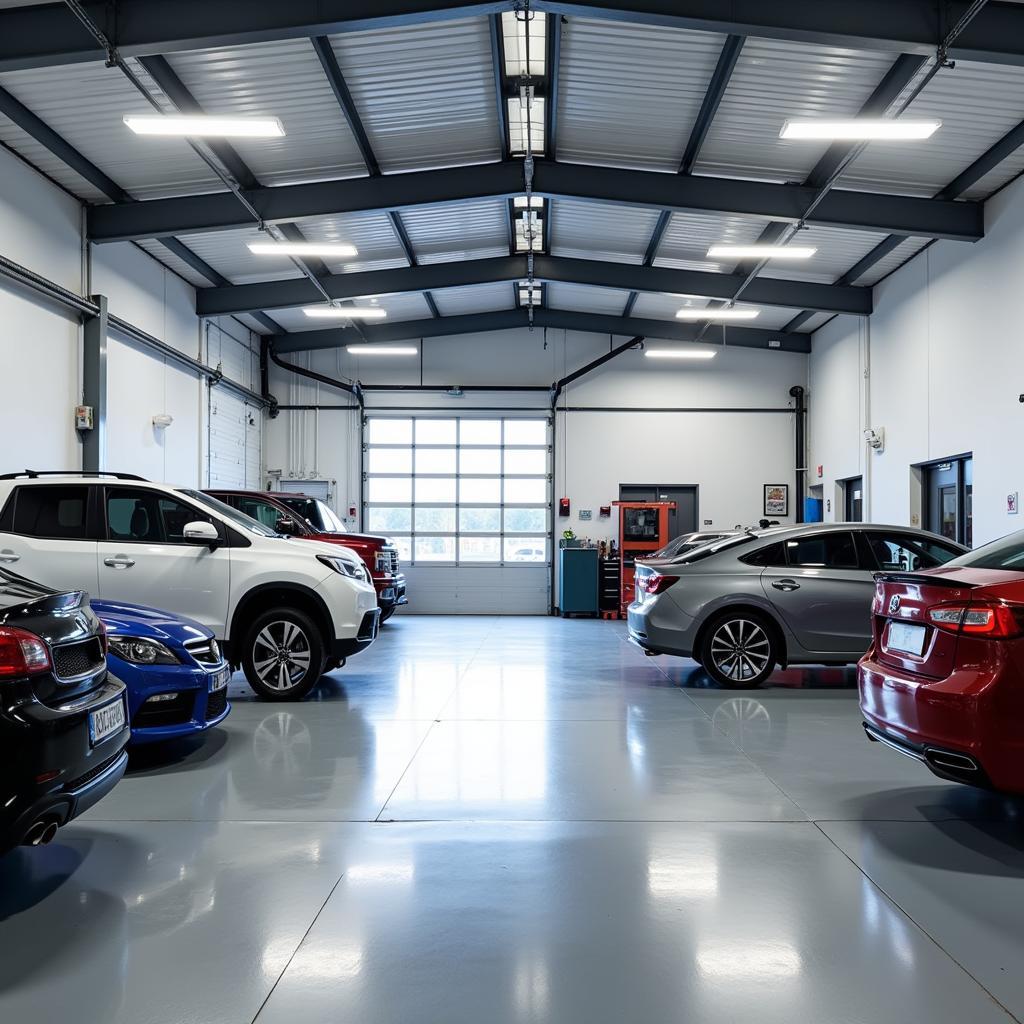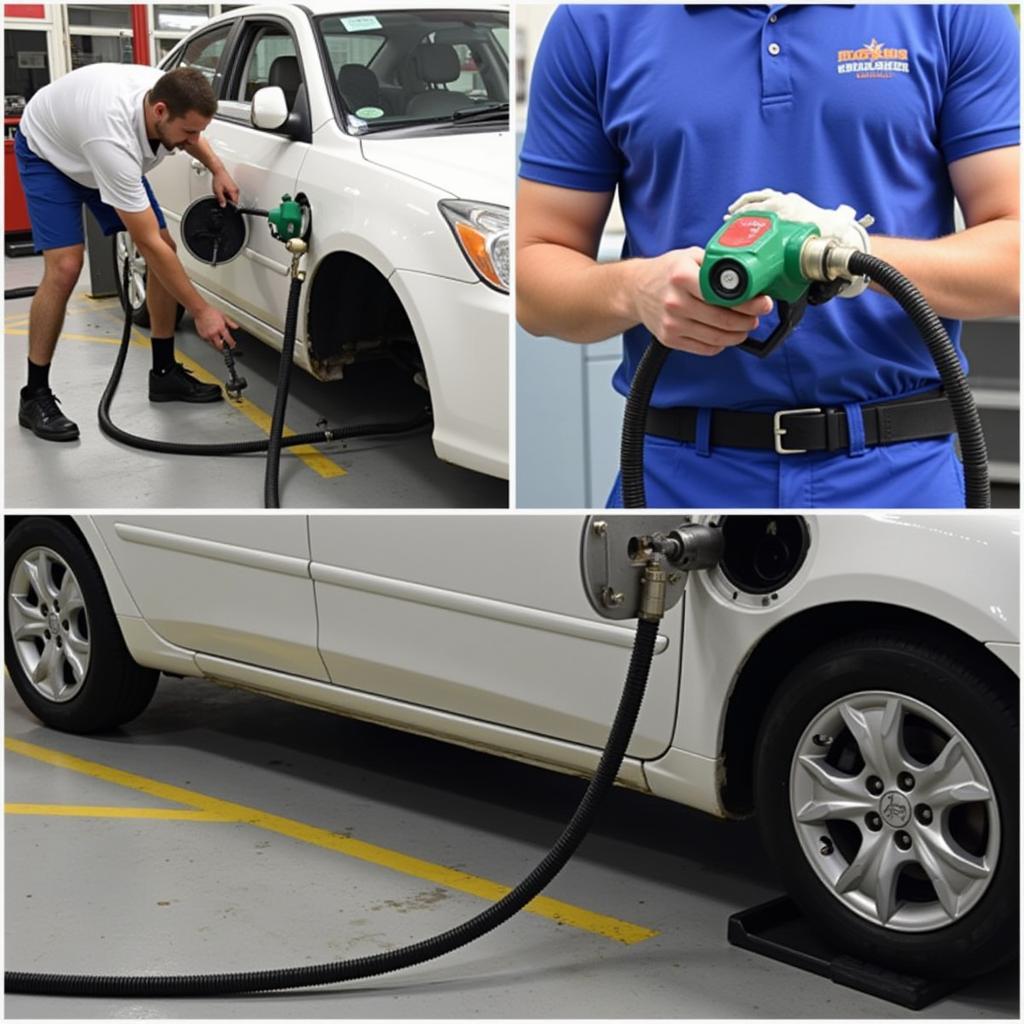Why Do We Service Cars? A Comprehensive Guide
Regular car servicing is crucial for maintaining its performance, reliability, and safety. But Why Do We Service Cars? It’s more than just an occasional oil change; it’s about proactive maintenance that prevents costly repairs down the line and ensures a smooth, safe driving experience. Understanding the importance of regular car service can save you money, time, and potential headaches.
The Importance of Regular Car Servicing
Car servicing encompasses a range of checks and procedures aimed at keeping your vehicle in optimal condition. Regular servicing helps identify potential issues before they escalate into major problems. Think of it like regular check-ups with your doctor – catching problems early makes them easier and less expensive to treat. Similarly, routine car maintenance can prevent breakdowns, extend the life of your vehicle, and even improve fuel efficiency. Investing in regular service is investing in the longevity and value of your car.
After your first car service, you’ll understand the peace of mind that comes with knowing your vehicle is in top shape. Want to know more about a standard service? Check out what is included in a standard car service.
Key Benefits of Car Service
Why do we service cars? Here are several compelling reasons:
- Safety: Regular brake inspections, tire rotations, and fluid checks ensure your car is safe to drive. A well-maintained car significantly reduces the risk of accidents caused by mechanical failure.
- Reliability: Servicing keeps your car running smoothly and reliably, minimizing the chances of unexpected breakdowns and costly towing fees.
- Performance: Regular tune-ups and component replacements help maintain optimal engine performance, fuel efficiency, and overall driving experience.
- Resale Value: A well-maintained car with a comprehensive service history commands a higher resale value. Potential buyers see regular servicing as a sign of responsible ownership.
- Warranty Compliance: Many manufacturers require regular servicing to maintain the validity of the vehicle’s warranty. Skipping scheduled services could void your warranty.
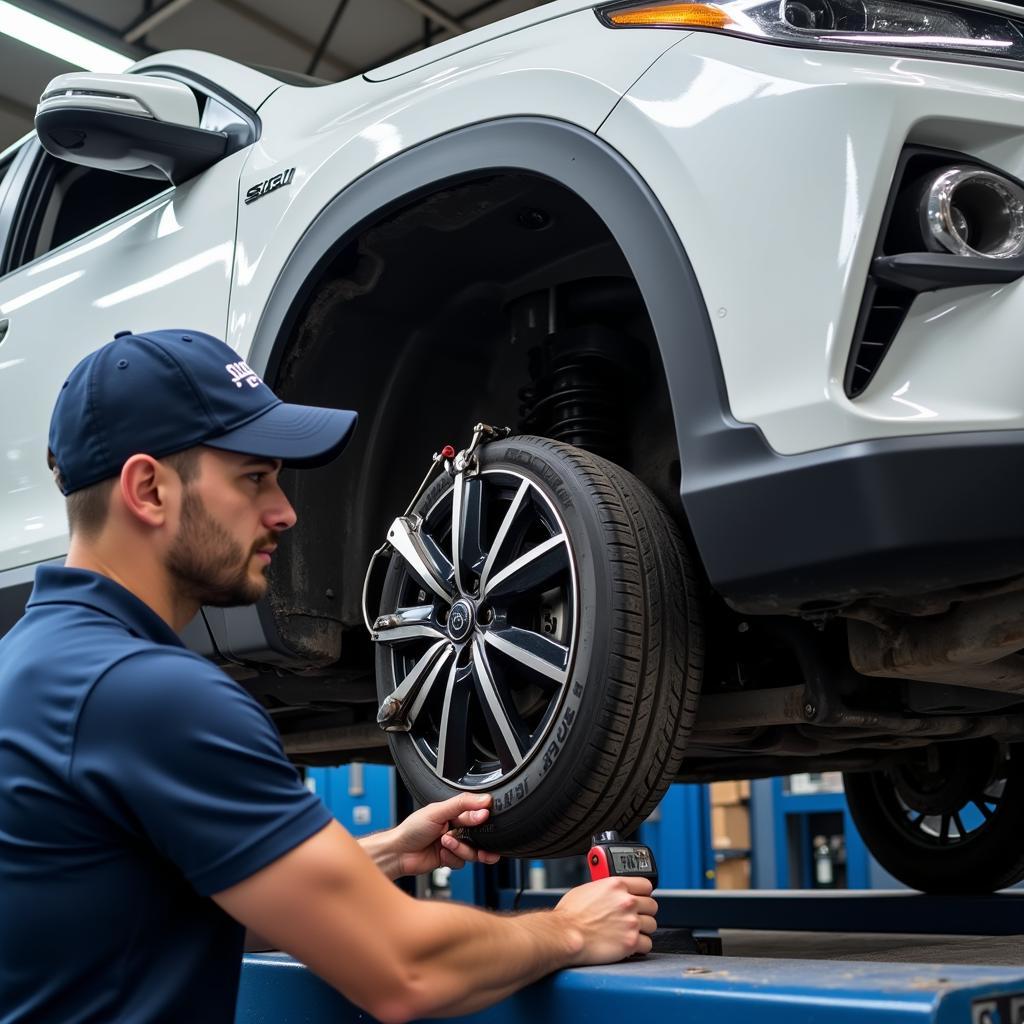 Car Service Safety Check
Car Service Safety Check
What Does Car Servicing Involve?
Car servicing encompasses a variety of checks and procedures depending on the mileage and age of your vehicle. Typical services include:
- Oil and Filter Change: Essential for lubricating the engine and preventing wear and tear.
- Fluid Top-Ups: Checking and topping up essential fluids like coolant, brake fluid, and power steering fluid.
- Brake Inspection: Checking brake pads, rotors, and calipers for wear and tear.
- Tire Rotation and Pressure Check: Ensuring even tire wear and optimal tire pressure for fuel efficiency and handling.
- Battery Check: Testing the battery’s health and ensuring it’s charging correctly.
- Spark Plug Replacement: Replacing worn spark plugs to improve engine performance and fuel economy.
- Air Filter Replacement: Ensuring clean air flow to the engine for optimal combustion.
Curious about the duration of a full car service? Find out how long does a full service take on a car.
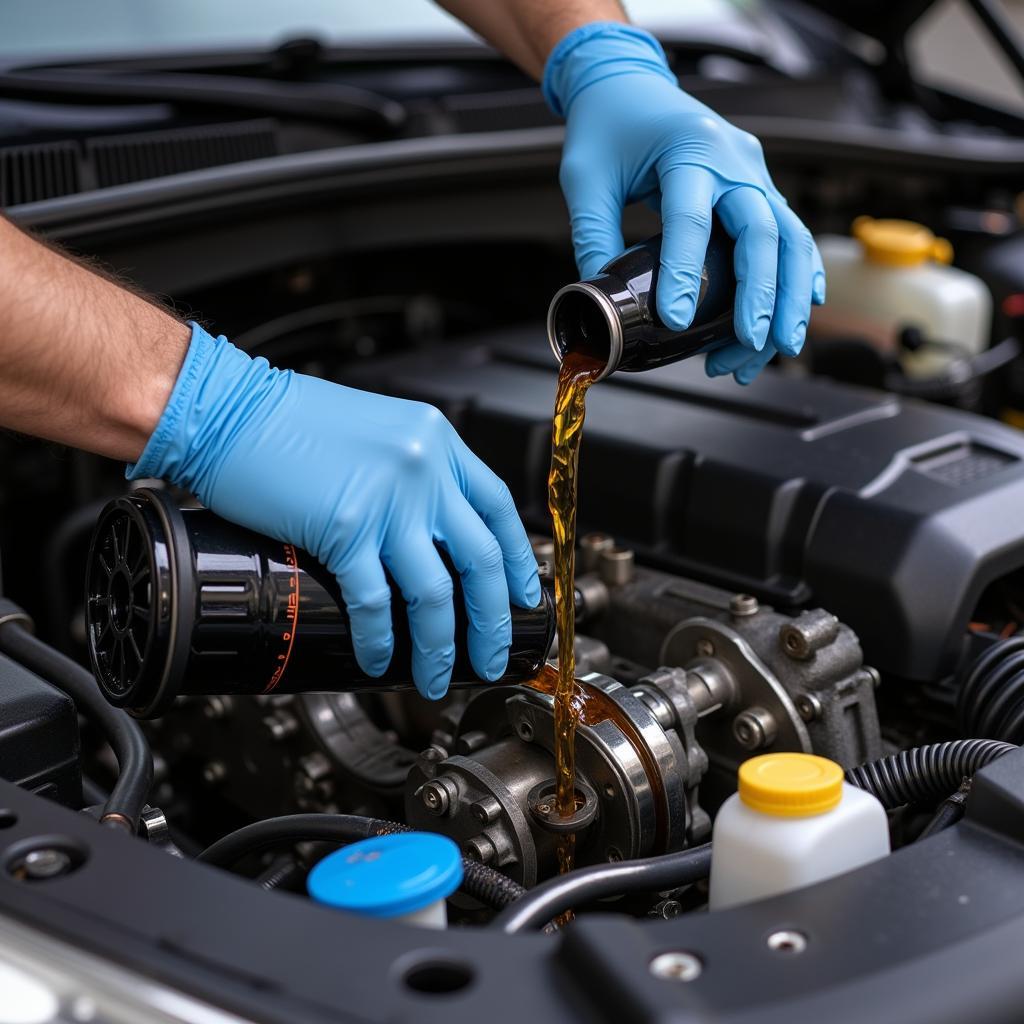 Mechanic Performing an Oil Change
Mechanic Performing an Oil Change
Why Do We Service Cars at Specific Intervals?
Manufacturers recommend specific service intervals based on mileage and time. These intervals are designed to address wear and tear on various components before they become problematic. Adhering to these recommended intervals is crucial for maintaining the vehicle’s warranty and preventing costly repairs. For example, neglecting regular oil changes can lead to engine damage, which can be significantly more expensive than the cost of an oil change.
Addressing Common Car Service Concerns
Many car owners delay or avoid servicing due to perceived costs or inconvenience. However, preventive maintenance is ultimately more cost-effective than dealing with major repairs down the line. Choosing a reputable car service center with qualified technicians can also alleviate concerns about quality and transparency. A good service center will clearly explain the necessary services and provide a detailed estimate before any work is performed.
“Regular car servicing is not an expense, it’s an investment. It’s about protecting your investment and ensuring the safety and reliability of your vehicle,” says John Smith, Senior Automotive Technician at Apex Auto Repair.
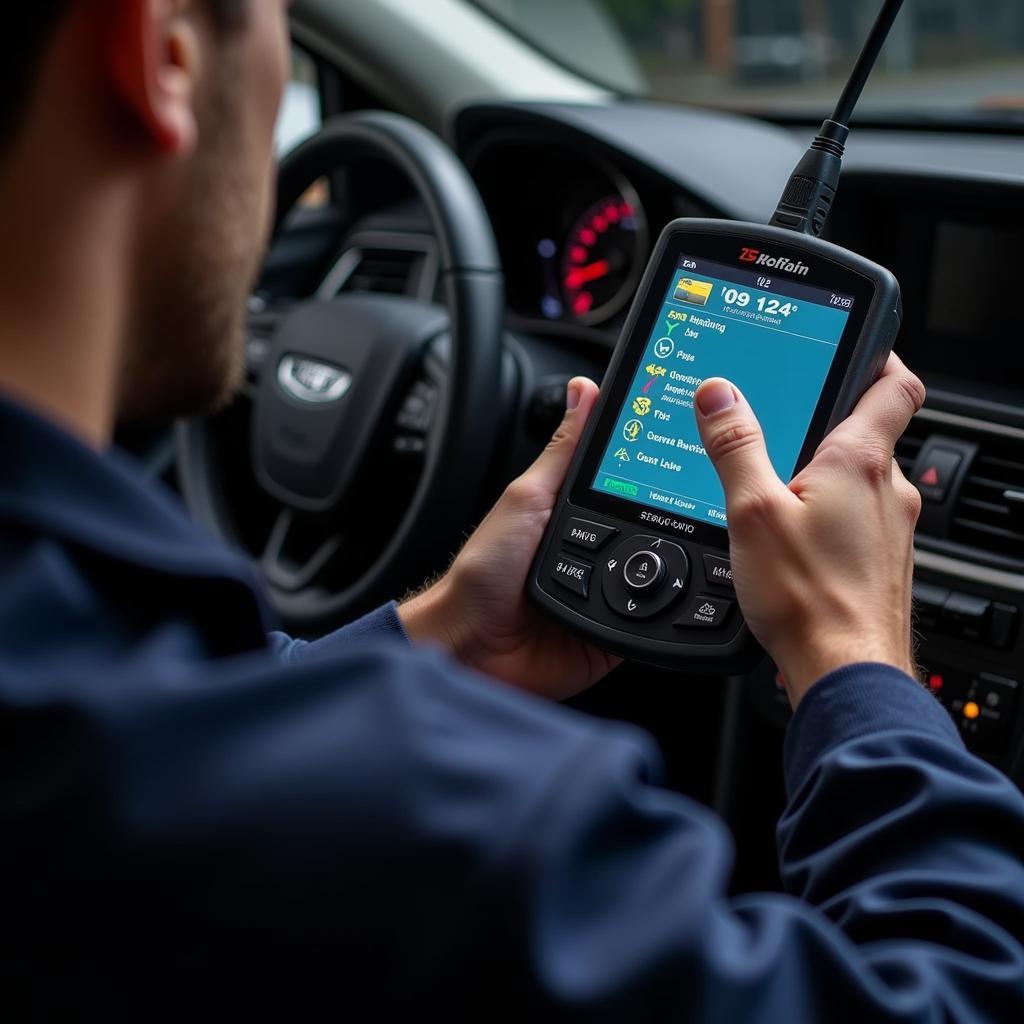 Car Service Diagnostic Check
Car Service Diagnostic Check
Want to understand what happens during your car’s first service? Learn more by visiting what happens in first car service. Also, if you’re interested in learning about a full car service, check out what’s included in a full service on a car.
Conclusion
Why do we service cars? Because it’s an essential part of responsible car ownership, contributing to safety, reliability, performance, and resale value. Regular servicing is an investment that pays off in the long run by preventing costly repairs and extending the life of your vehicle. By understanding the importance of car service and adhering to recommended maintenance schedules, you can enjoy a worry-free driving experience and maximize the value of your vehicle.
FAQ
-
How often should I service my car? Refer to your owner’s manual for the manufacturer’s recommended service intervals.
-
What is the difference between a full service and an interim service? A full service is more comprehensive and covers more checks and procedures than an interim service.
-
How can I find a reputable car service center? Ask for recommendations from friends and family or check online reviews.
-
How much does car servicing cost? The cost varies depending on the type of service and the make and model of your car.
-
What should I do if my car breaks down between services? Contact a reputable breakdown service or your car insurance provider.
Need help with Car Service? Contact us via WhatsApp: +1(641)206-8880, Email: [email protected]. We have a 24/7 customer support team.
